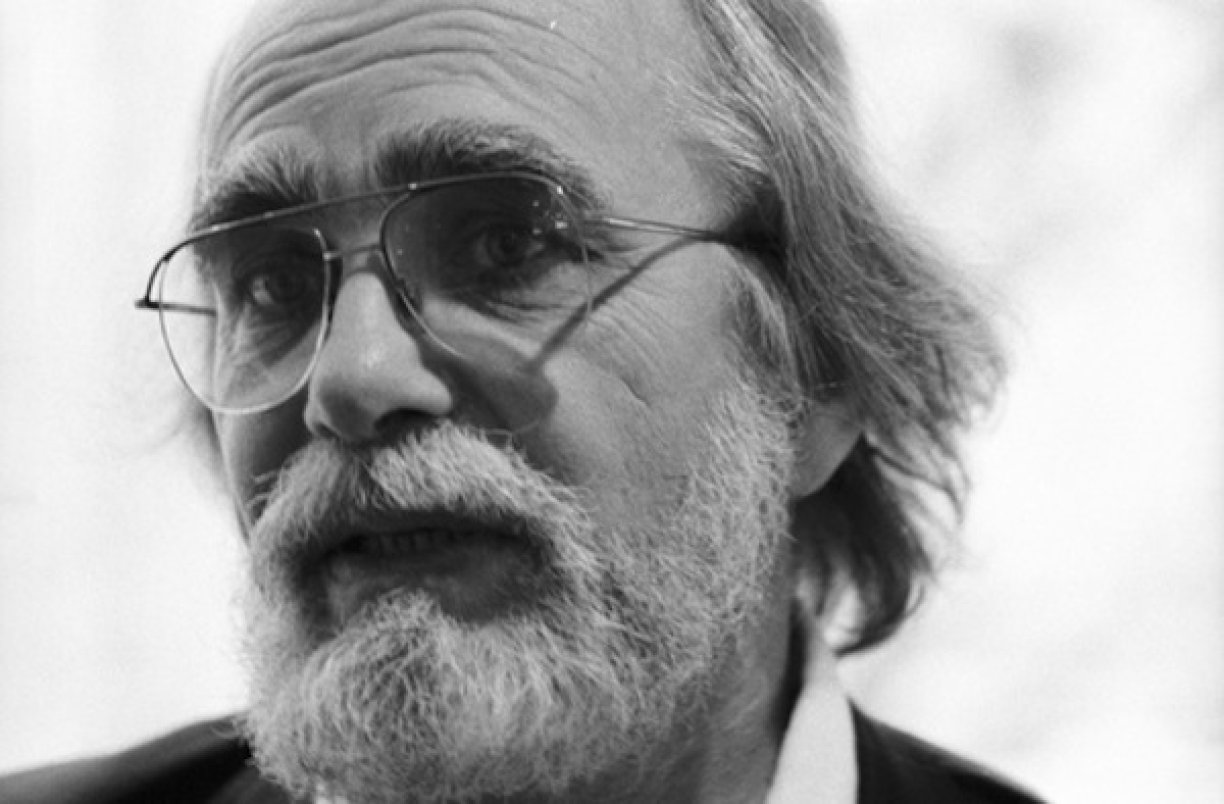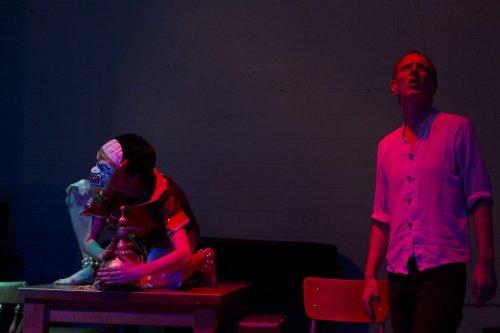In celebration of his eightieth birthday, the Darmstadt Festival is proud to present a program of works and re-workings by composer Larry Austin. The program will include: Les Flûtes de Pan: Hommage à Debussy (2006), for flute and 8-channel sound; art is self-alteration is Cage is... (1982), for double bass with recorded bass ensemble; ¡Tárogató! (1998), for tárogató and octophonic computer music; BluesAx (1995), for saxophonist and electronics; Tableaux: Convolutions on a Theme (2003), for alto saxophone, octophonic computer music, and video projection; and Williams [re]Mix[ed] (1997-2000), for octophonic computer music system, based on John Cage's Williams Mix (1951-53), for eight magnetic tapes: The Theme Restored. Performers will include Jacqueline Martelle, Robert Black, Esther Lamneck, Steve Duke, and Kevin Evansen.
Program
Les Flûtes de Pan: Hommage à Debussy (2006), for flute (piccolo) and octophonic computer music, Jacqueline Martelle, flute (piccolo)
art is self-alteration is Cage is... (1982), for double bass with recorded bass ensemble, Robert Black, solo double bass
¡Tárogató! (1998), for tárogató and octophonic computer music, Esther Lamneck, tárogató soloist
BluesAx (1995), for saxophonist (sop/alto) and electronics, Steve Duke, saxophones
Tableaux: Convolutions on a Theme (2003), for alto saxophone, octophonic computer music, and video, Steve Duke, saxophone soloist, Kevin Evensen, video artist
Williams [re]Mix[ed] (1997-2000), for octophonic computer music system, based on John Cage's Williams Mix (1951-53), for eight magnetic tapes: The Theme Restored; Six Short Variations: A-city sounds, B-country sounds, C-electronic sounds, D-manually produced sounds, E-wind produced sounds, F-small sounds; The Nth Realization
Of the program, Larry Austin writes: “I am honored to have been invited by the Issue Project Room to present a concert of my music in recent retrospect, celebrating my eightieth year. Five of these six compositions have been composed for and brilliantly performed many times in many venues by these same inspired soloists: contrabassist Robert Black, saxophonist Steve Duke, tárogató performer Esther Lamneck, and flutist Jacqueline Martelle. The sixth and last composition on the concert is for octophonic computer music alone and is a tribute to John Cage, whom I claim as one of my most important mentors. In a dinner conversation John and I were enjoying at his New York apartment in 1981, I asked him: “John, what kind of composer are you?” He replied, “I’m an experimental composer, Larry.” I am, too. I mix genres (BluesAx); I convolute sources (Tableaux); I appropriate and transform (¡Tárogató! ); I invent, improvise, concoct (art is…); and I restore, remake, and rearrange (Williams [re]Mix[ed]). I ask my performers to experiment as well, melding their musics with mine to produce stronger, ever more vital, hybrid musics. Join me and the performers as we all explore the possibilities together.”
Biographer Thomas Clark writes: Larry Austin has produced cutting-edge musical works in a broad spectrum of genres, mediums, and styles: avant-garde, improvisation, orchestral, electronic, computer, fractal and other algorithmic composition, and historical “re-composition”. His music has been performed by the New York Philharmonic, Boston Symphony, National Symphony, Cincinnati Philharmonia, Saarland Rundfunk Sinfonieorchester, and National Philharmonic of Warsaw, and has been heard in Asia, Europe, the U.K., and throughout North and South America.
Austin’s 38-year academic career included UC-Berkeley, UC-Davis, University of South Florida, and University of North Texas (retired 1996), teaching subjects including marching band, composition, and advanced computer-music research. A sought-after mentor, his former students include many successful composers. He founded the Consortium to Distribute Computer Music and co-founded SOURCE magazine, UNT Center for Experimental Music and Intermedia, and System Complex for Studio and Performing Arts at USF. He also served as President of the International Computer Music Association and directed its standard-setting 1981 International Computer Music Conference. Prizes and honors include the Bourges Magistère prize (1996), the 2009 SEAMUS Award for Lifetime Achievement, many residencies (in Rome, Bellagio, Birmingham and York in the UK, Tokyo, MacDowell Colony, Yaddo), and numerous commissions. Born 1930 in Duncan, Oklahoma, Austin grew up a precocious trumpet player in Vernon, Texas. At North Texas State Teachers College (now UNT), he played in the original One O’clock Lab Band, studied with John Haynie, Robert Ottman, and composer Violet Archer, and earned bachelor’s and master’s degrees. He later studied with Darius Milhaud and Andrew Imbrie in California and began an extended association and friendship with John Cage. He served in the Fourth U.S. Army Band based in San Antonio, where he met and married Edna Navarro in 1953. Their large extended family includes children Don, Elizabeth, David, Thais, and Aurora as well as thirteen grandchildren and four great-grandchildren.


